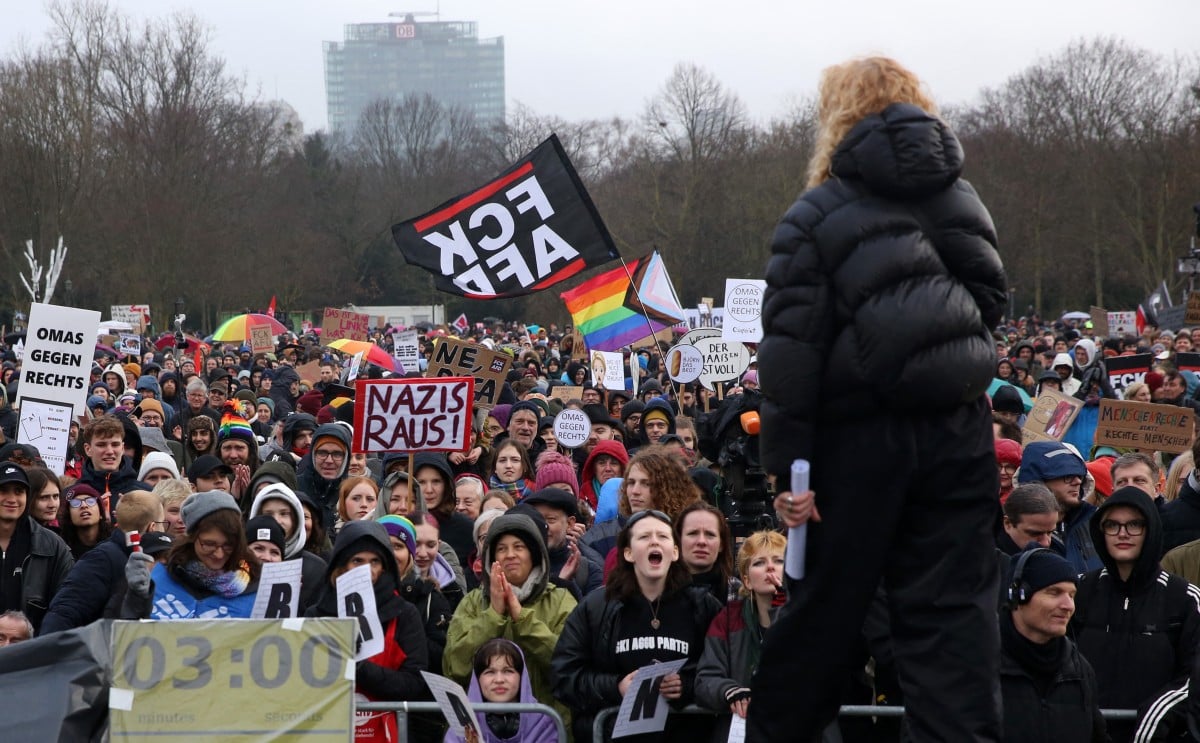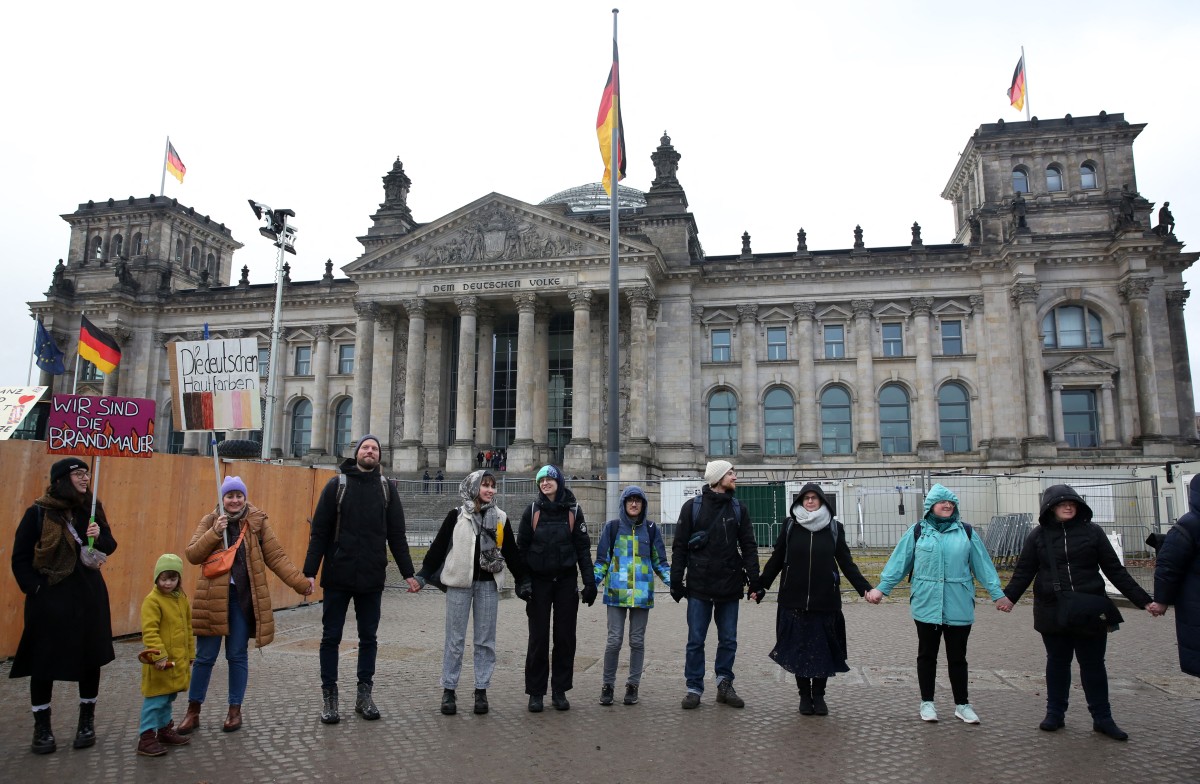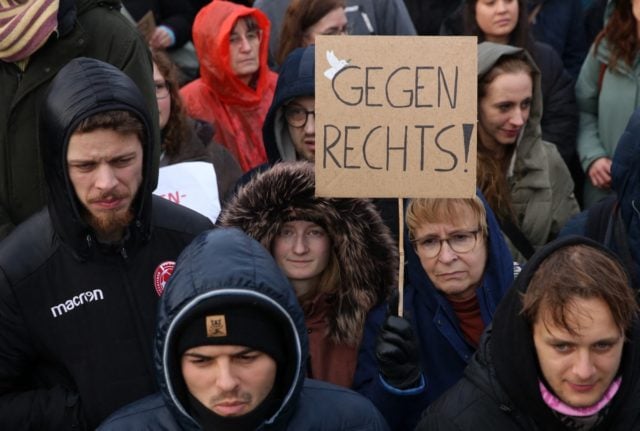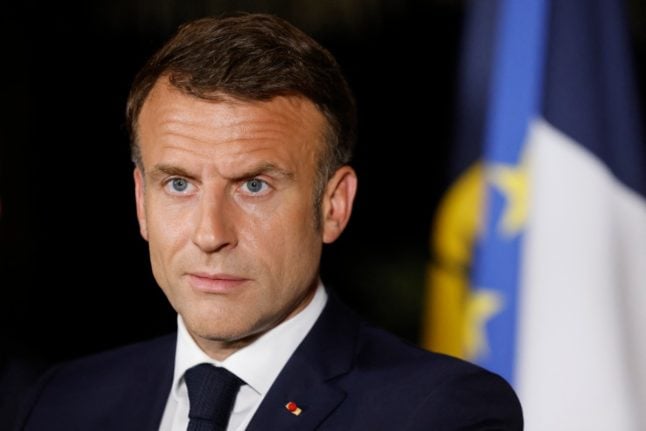Nearly 150,000 people turned out in Berlin according to police, some forming a human chain in front of parliament. Organisers put the figure at 300,000.
Similar protests took place in around 200 other cities.
The wave of mobilisation against Alternative for Germany (AfD) was sparked by a January 10 report by investigative outlet Correctiv revealing that AfD members had discussed the expulsion of immigrants and “non-assimilated citizens” at a meeting with extremists.
The report sent shock waves across Germany at a time when the AfD is soaring in opinion polls, months ahead of three major regional elections in eastern Germany where their support is strongest.
“All together against racism,” the crowd in Berlin shouted. Some held posters that said “Heart instead of hate” or “Racism is not an alternative”.

READ ALSO: German far-right AfD voters unmoved by protest wave
Many people hoping to attend the Berlin rally found the site already packed, and were directed to a nearby park or the riverbanks along the Spree River, AFP journalists saw.
“I don’t know if these demonstrations will influence AfD voters,” Margret Hurth, a 53-year-old childcare worker, told AFP.
“But it’s important to send a signal, because we need more humanity and respect for our differences.”
“I came to set an example,” said Martin Raue, a university professor who had come from Sweden to attend the rally. “I was born in Germany.”
The Berlin rally was organised by the “Hand in Hand” collective, which is made up of 1,800 organisations, including the Fridays for Future climate group.
Around 700 police were deployed for the rally, which ended without incident late in the afternoon.
‘Against hate’
A human chain was also formed around the state assembly building in Potsdam, just southeast of Berlin.

German Chancellor Olaf Scholz hailed the demonstrations in a post early Saturday on X, formerly Twitter.
“In small and large cities across the country, numerous citizens are gathering to demonstrate again this weekend against forgetting, against hate and inciting hate. A strong sign for our democracy and our constitution,” he wrote.
Ob in Eisenach, Homburg oder Berlin: In kleinen und großen Städten im ganzen Land kommen viele Bürgerinnen und Bürger zusammen, um gegen das Vergessen, gegen Hass und Hetze zu demonstrieren – auch an diesem Wochenende. Ein starkes Zeichen für die Demokratie und unser Grundgesetz.
— Bundeskanzler Olaf Scholz (@Bundeskanzler) February 3, 2024
Markus Soeder, the powerful leader of the conservative CSU party in the opposition, denounced the AfD as “a deeply far-right party” in comments to the Rheinische Post newspaper.
“I’m literally shocked each time I hear their hateful speeches,” he added.
The AfD, an anti-immigration party, confirmed the presence of its members at a November meeting with Martin Sellner, a leader of Austria’s white pride Identitarian Movement.
READ ALSO: How much of a threat is Austria’s far-right Identitarian Movement?
But it has denied taking on the “remigration” project championed by Sellner and his movement, which subscribes to the “great replacement” conspiracy theory that claims there is a plot to replace Europe’s “native” white population with non-white migrants.
The party has more than 30 percent support in some parts of the former East Germany, where regional elections are due to be held later this year.
The AfD denounced “a campaign against the only true opposition party in Germany”, in a post on X Saturday.
“Where are we in Germany when a government calls for a demonstration against part of its population?” it asked.



 Please whitelist us to continue reading.
Please whitelist us to continue reading.
Member comments